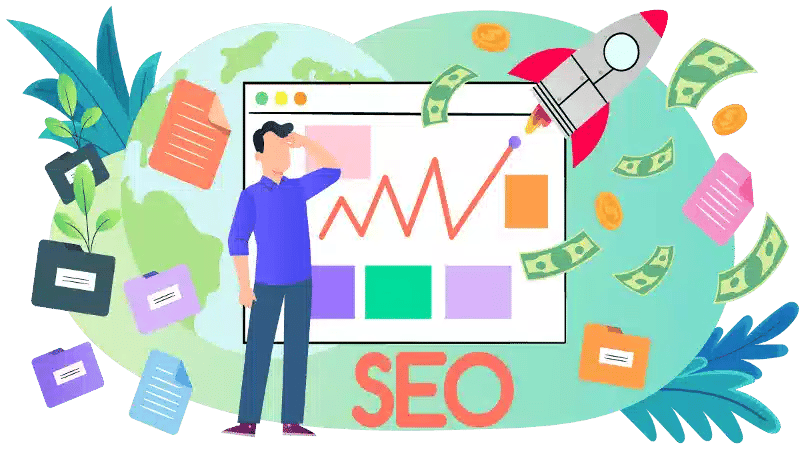Scaling Your Business: Is Strategic Business Development the Answer?
What's the secret to sustainable growth for a B2B startup? For many, this answer is unknown–one minute, you're celebrating a new client, and the next, you're wrestling with operational bottlenecks. Many founders hit a growth plateau, unsure of how to break through.
Is strategic business development the key to unlocking sustainable expansion? This blog explores how smart partnerships, market diversification, and revenue strategy can fuel your journey from startup to scale-up.

The Scaling Hurdle: Common Challenges
Scaling a B2B startup isn't just about adding more customers; it's a complex dance of managing growth across multiple fronts. Many businesses find themselves hitting a wall, facing a unique set of challenges as they strive to expand. Let's explore some of the most common hurdles:
Talent Acquisition
Your product or service is only as good as the team behind it. Finding and retaining top talent in a competitive market is a constant struggle. Startups often compete with larger, more established companies that can offer higher salaries and more comprehensive benefits packages.
A LinkedIn survey revealed that 70% of startups cite talent acquisition as their biggest scaling challenge. Building a strong employer brand and offering competitive compensation are crucial, but even then, attracting the right people who align with your company's values is a significant undertaking.
Maintaining Company Culture
In the early days, your startup's culture is often organic, driven by the close-knit team and shared passion. However, rapid growth can dilute this initial culture. As you bring on more employees, it becomes harder to maintain the same level of personal connection and shared understanding.
When Slack went from a few dozen employees to hundreds, they had to implement new strategies to preserve their unique culture, including dedicated culture teams and regular company-wide events. Scaling requires intentional effort to preserve the core values that made your startup special in the first place.
Scaling Infrastructure and Operations
This encompasses both the technology and the processes that support your growing business. Outdated processes and systems that worked fine when you were smaller can quickly become major roadblocks as you scale. Manual tasks, inefficient workflows, and a lack of automation can hinder your ability to handle increased volume and complexity.
A Gartner study found that 60% of rapidly scaling companies struggle with operational inefficiencies. This also includes your technological infrastructure. Can your servers handle the increased traffic? Are your systems integrated effectively? Investing in scalable infrastructure, automating repetitive tasks, implementing efficient processes, and choosing the right technology are all essential for smooth growth. Failing to address these infrastructural needs can lead to performance issues, security vulnerabilities, and, ultimately, a stunted growth trajectory.
Funding and Resource Management
Growth requires capital. Securing funding and managing resources effectively is a constant balancing act. Startups often face challenges in attracting investors, managing cash flow, and allocating resources strategically. According to CB Insights, 90% of startups fail, and a common reason is running out of cash. Developing a solid financial plan, tracking key metrics, and making data-driven decisions are crucial for navigating the financial complexities of scaling.
Market Competition
As your business scales and enters new markets, you'll inevitably face increased competition. The rise of SaaS has intensified competition, with new players emerging constantly.
Established companies may also enter your space, bringing with them significant resources and brand recognition. Staying ahead of the curve, differentiating your offerings, and building a strong brand are essential for competing effectively in a dynamic market.
Strategic Business Development: A Roadmap for Sustainable Growth
Many B2B startups confuse sales with business development. While sales is undoubtedly important, it's just one piece of the puzzle. True, sustainable growth requires a more holistic approach: strategic business development. It's not simply about closing deals; it's about creating long-term value through strategic initiatives that position your company for continued success.
Strategic business development is more than just sales and marketing combined. While sales focuses on immediate transactions and marketing focuses on attracting leads, business development focuses on building relationships and ecosystems. It's about identifying opportunities for growth beyond immediate sales targets, forging strategic alliances, and creating entirely new avenues for revenue generation.
Think of it as laying the foundation for future expansion rather than just harvesting the crops of today. While sales might bring in revenue this quarter, business development sets the stage for exponential growth in the coming years.
Several key components comprise a robust strategic business development plan:
-
Strategic partnerships: The power of collaboration cannot be overstated. Strategic partnerships allow you to leverage the resources, expertise, and networks of other organizations to achieve more than you could alone. These partnerships can take many forms: joint ventures, co-marketing agreements, technology integrations, and more. By aligning with complementary businesses, you can expand your reach, access new markets, and accelerate your growth trajectory.
-
Market expansion: Reaching new customers is essential for scaling. Market expansion involves developing strategies for entering new markets, whether geographically, demographically, or through product diversification. This might involve opening new offices, adapting your products or services to local needs, or targeting entirely new customer segments. Careful market research and a tailored approach are essential for successful expansion.
-
Revenue diversification: Relying on a single revenue stream can be risky. If that stream dries up, your entire business is vulnerable. Revenue diversification involves developing multiple revenue streams to create a more resilient and sustainable business model. This could involve offering new products or services, adopting different pricing models (e.g., subscriptions, licensing, freemium), or exploring entirely new business lines.
Amazon's diversification from online bookselling to cloud computing and other ventures is a classic example of how revenue diversification can fuel long-term growth and mitigate risk. By not putting all your eggs in one basket, you create a more stable and adaptable business.
The Power of Partnerships
Strategic partnerships are a cornerstone of successful scaling. They offer a potent way to accelerate growth, expand reach, and enhance your competitive advantage. Let's delve into the specific benefits:
-
Access to new markets and customers: One of the most compelling reasons to form strategic partnerships is the ability to tap into new markets and customer bases. A partnership with a large enterprise, for example, can give a startup instant access to a vast customer base that would otherwise take years to cultivate. Similarly, partnering with a company that serves a different geographic region or demographic can open doors to previously untapped markets. This expanded reach translates directly into increased sales opportunities and faster market penetration.
-
Shared resources and expertise: Partnerships can provide access to resources and expertise that a startup might not otherwise possess. A tech startup partnering with a manufacturing company, for example, can leverage its production capabilities, streamlining its manufacturing process and reducing capital expenditure. Conversely, the manufacturing company might benefit from the tech startup's innovative software solutions. This symbiotic relationship allows both partners to focus on their core competencies while benefiting from the other's strengths.
-
Increased brand credibility: Partnering with a well-established brand can significantly enhance a startup's reputation. The association with a trusted and respected name lends credibility and builds trust with potential customers. This "halo effect" can be particularly valuable for startups that are still building their brand awareness and reputation. By aligning with a recognized leader in the industry, a startup can gain instant credibility and accelerate its growth trajectory.
Case Study: Aspiration Marketing and HubSpot
An example of a successful partnership in the B2B space is the relationship between Aspiration Marketing and HubSpot.
Aspiration Marketing strategically partnered with HubSpot, a leading inbound marketing and sales software provider. This partnership allows Aspiration Marketing to leverage HubSpot's powerful tools, extensive resources, and vast network of customers. Becoming a HubSpot Platinum Partner has provided Aspiration Marketing with access to exclusive training, marketing materials, and support, enabling us to better serve our clients and expand our service offerings.
In turn, HubSpot benefits from having a skilled and certified partner promoting and implementing their platform. This mutually beneficial relationship has fueled growth for both companies, demonstrating the power of strategic alignment. Aspiration Marketing has been able to expand our client base and offer cutting-edge marketing solutions, while HubSpot has strengthened its market presence and increased its customer adoption.
Building Your Business Development Plan for Scalability
A well-defined business development plan is the roadmap to scaling success. Without a clear strategy, your efforts will likely be scattered and ineffective. It's not enough to simply want to grow; you need a concrete plan that outlines how you're going to achieve your goals. This plan should serve as a living document, regularly reviewed and updated as your business evolves.
Several key elements should be included in your business development plan:
-
Clear objectives and KPIs: What exactly do you want to achieve? Define specific, measurable, achievable, relevant, and time-bound (SMART) objectives. Identify the key performance indicators (KPIs) that you will track to measure your progress.
-
Target market analysis: Who are your ideal customers? Conduct thorough research to understand their needs, pain points, and buying behaviors. This knowledge will inform your partnership strategy and market entry approach.
-
Partnership strategy: Which organizations are the best fit for strategic alliances? Identify potential partners that complement your strengths and provide access to new markets or resources. Outline the terms of potential partnerships and how they will be mutually beneficial.
-
Market entry strategy: How will you enter new markets? Develop a detailed plan that outlines your approach, whether it's through geographic expansion, product diversification, or targeting new customer segments.
-
Financial projections: What are the expected financial outcomes of your business development initiatives? Develop realistic financial projections that include revenue forecasts, cost estimates, and return on investment (ROI) calculations.
Developing a comprehensive business development plan can seem daunting, but it's an essential step for any startup looking to scale effectively.
Building a Sustainable Future: The Power of Strategic Growth
Scaling a B2B startup is a marathon, not a sprint. Strategic business development provides the essential framework for sustainable growth, offering a powerful alternative to haphazard expansion. By focusing on strategic partnerships, targeted market expansion, and diversified revenue streams, you can build a resilient and thriving business. A well-defined business development plan is your key to unlocking significant growth potential and navigating the complexities of scaling. Don't leave your growth to chance.
Aspiration Marketing helps B2B startups like yours develop and implement effective business development strategies. Contact us today to learn how we can help you scale your business and achieve your goals.
This content is also available in:
- Deutsch: Unternehmensskalierung: Strategien für nachhaltiges Wachstum
- Español: Desarrollo estratégico: Clave para el crecimiento sostenible
- Français: Croissance Startup B2B: Stratégies pour surmonter les défis courants
- Italiano: Scalare l'azienda: Lo sviluppo strategico del business è la risposta?
- Română: Strategii de Creștere Durabilă pentru Start-up-urile B2B
- 简体中文: 扩大业务规模:战略业务发展是答案吗?

Joachim is a certified HubSpot trainer with over 13 years of experience in content marketing, strategy, website development, and SEO. He has implemented numerous large-scale, international growth marketing programs, including one with UiPath, which grew from a startup to a successful IPO on the NYSE. Joachim has special expertise in multilingual marketing and sales enablement projects, and he uses the latest AI technologies to help our clients.









Leave a Comment